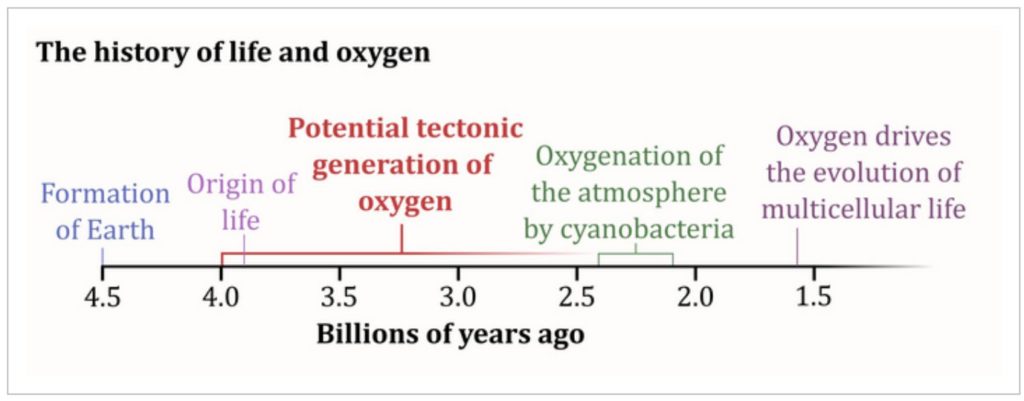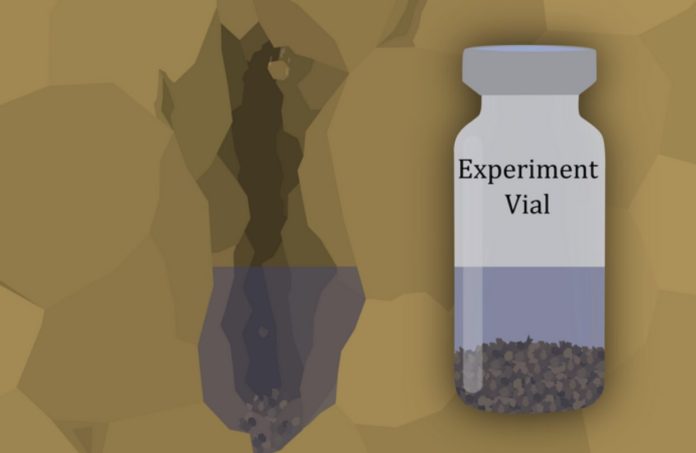Researchers at Newcastle University have discovered an oxygen source that might have had an impact on the development of life before photosynthesis.
The ground-breaking study, conducted by Newcastle University’s School of Natural and Environmental Sciences and reported today in Nature Communications, revealed a mechanism for how geological fault movement can cause rocks to produce hydrogen peroxide.
Hydrogen peroxide can be toxic to life at large doses, yet it can also be a beneficial source of oxygen for bacteria. Prior to the development of photosynthesis, this additional supply of oxygen may have influenced the early evolution, and possibly even the origin, of life in hot settings on the early Earth.
In tectonically active areas, the movement of the Earth’s crust causes not just earthquakes but also fissures and cracks in the subsurface that are bordered by highly reactive rock surfaces that have many flaws. The flaws on the newly split rock can then filter down and interact with the water.
Crushing granite, basalt, and peridotite, three types of rocks that would have been present in the early Earth’s crust, in a laboratory setting, allowed master’s student Jordan Stone to mimic these conditions. After that, these were added to water at various temperatures and under precisely controlled oxygen-free conditions.
The tests showed that significant levels of hydrogen peroxide, and hence, possibly oxygen, were only produced at temperatures near the boiling point of water.
Importantly, the temperature at which hydrogen peroxide is formed matches the growth ranges of some of the Earth’s most heat-loving bacteria, known as hyperthermophiles, including oxygen-using ancient evolutionary microbes close to the base of the Universal Tree of Life.

This is the first study to demonstrate the critical significance of hot temperatures in maximizing hydrogen peroxide generation, according to lead author Jordan Stone, who carried out this investigation as part of his MRes in Environmental Geoscience.
Previous research has suggested that small amounts of hydrogen peroxide and other oxidants can be formed by stressing or crushing rocks in the absence of oxygen.
The findings of the study, according to Dr. Jon Telling, show “that defects on crushed rock and minerals can behave very differently to how you would expect more ‘perfect’ mineral surfaces to react.”
As explained by the principal investigator, Water, crushed rocks, and high temperatures are all the ingredients that these mechanochemical reactions require to produce hydrogen peroxide and subsequently oxygen.
These ingredients were all present on the early Earth before photosynthesis evolved and may have influenced the chemistry and microbiology in the hot, seismically active regions where life may have first originated.
Image Credit: Getty
You were reading: Scientists Uncover Strange Life-Giving Defects Hidden Deep In The Earth’s Crust
